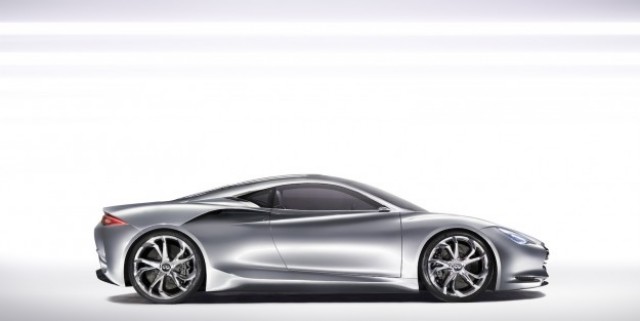
Infiniti is rushing to expand its product portfolio, according to the brand’s global boss, Johan de Nysschen.
Following a discussion about Infiniti’s plans to increase its global footprint and brand awareness, de Nysschen outlined to CarAdvice how the company is assessing its product expansion priorities.
The Q60 – a two-door coupe derivative of the Q50 sedan shown at the Detroit auto show – is expected in 2015/16 according to de Nysschen, but potentially not before the release of other models that would fill higher-volume segments – read, SUVs.
“I think the coupe is an important part of the platform,” de Nysschen said. “Most certainly we are working right now on a coupe derivative of the car [Q50] … known at the Q60.
“But, you know, there are a lot of priorities for us.
“I really want to look at expansion of the entire portfolio. So we probably need to prioritise a little bit the volume segments.
“So the coupe we can probably expect two and a half to three years down the road.”
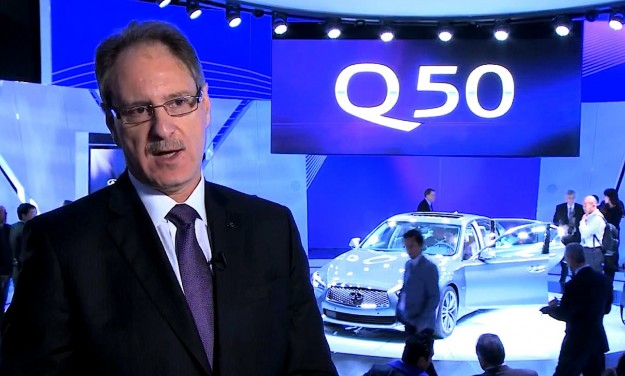
The term ‘volume segments’ is a clear code for the SUV segments – Infiniti has no answer to the BMW X1 or X3, and Audi Q3 and Q5, despite strong global sales of its mid-sized FX SUV.
Although de Nysschen refused to comment specifically on the segments targeted, he did cite the urgent need to expand Infiniti’s engine range with its current cars.
“[Infiniti] being very US-centric, it was not considered important to have a gasoline four-cylinder engine and clean diesel powertrains, which has been an inhibitor to our ability to grow into markets like China and Europe,” admits de Nysschen.
“I imagine that with a powerful and efficient turbocharged four-cylinder, we could probably see the total sales mix [of Q50] exceeding 40 per cent,” although we are “about two years” from seeing a turbo four in the just-launched Q50 sedan.
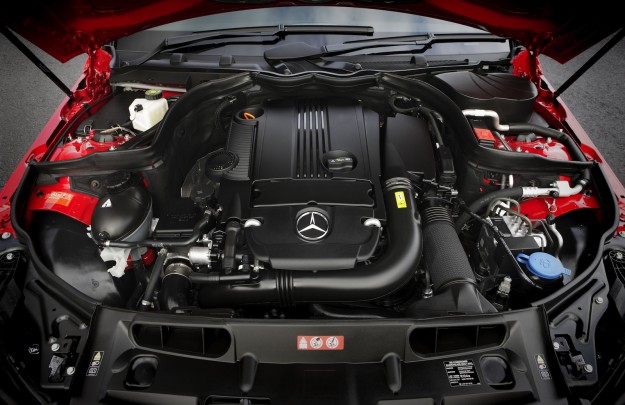
Last year Infiniti signed a cooperative agreement with Daimler to firstly install in the Q50 the 2.0-litre turbocharged direct-injection four-cylinder diesel and petrol (above) engines currently used in the C-Class.
Asked why Infiniti could not develop its own four-cylinder engine, or adapt a Nissan/Renault engine to its needs, de Nysschen said frankly that “we are in a hurry”.
“To develop in-house with the turbocharged feature, and the noise vibration and harshness characteristics that we seek, would just take longer,” he added.
“Same for transmissions. We will be commencing, through joint manufacturing with Jatco, a transmission that will also be used by Daimler.
“This is what is happening in the marketplace right now. With the high cost of development, of vehicles and technology, you see strategic alliances happening all over the industry. It just so happens now that Infiniti and Daimler … we are competitors.”
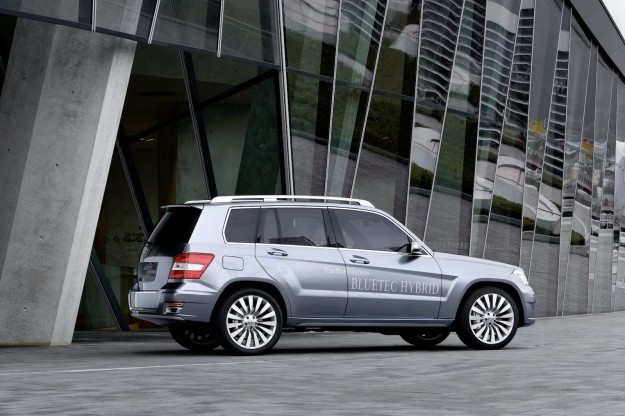
Beyond shared drivetrains, de Nysschen also confirmed that platform sharing between Infiniti and Mercedes-Benz is being investigated.
“There is potential for platform sharing, joint platform development … all of these are under exploration at the moment.
“Let’s first make sure that we have an agreement to develop one [a new model] off the same platform, then we can talk timeframes.
“Because if I tell you it’s in six months or six years, I might read … that I have announced a new model.”
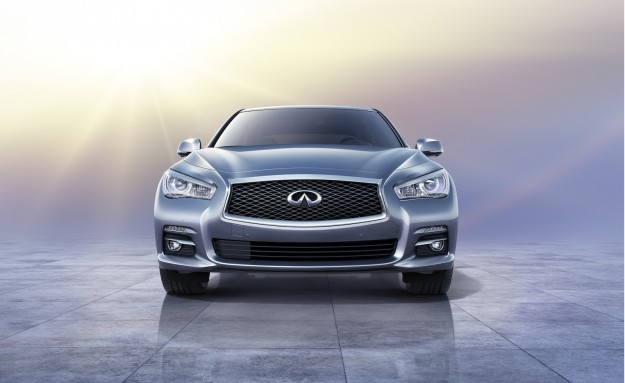
Similarly coy about whether Infiniti would build a high-performance derivative of the Q50 to rival the Lexus IS F, Audi RS4, BMW M3 and Mercedes-Benz C63 AMG, de Nysschen responded that “we should imagine that we would want to also further enhance the reputation we have for high performance cars…”
Pressed for specifics, he added that “someday in the future we will be able to offer more high performance versions [of Q50] than we have today.
“I think that anything is possible, the dynamic capabilities of this platform are very significant. It can handle far higher power than the engines we are using at launch.
“It hasn’t been decided yet, [but] it’s under investigation”.





